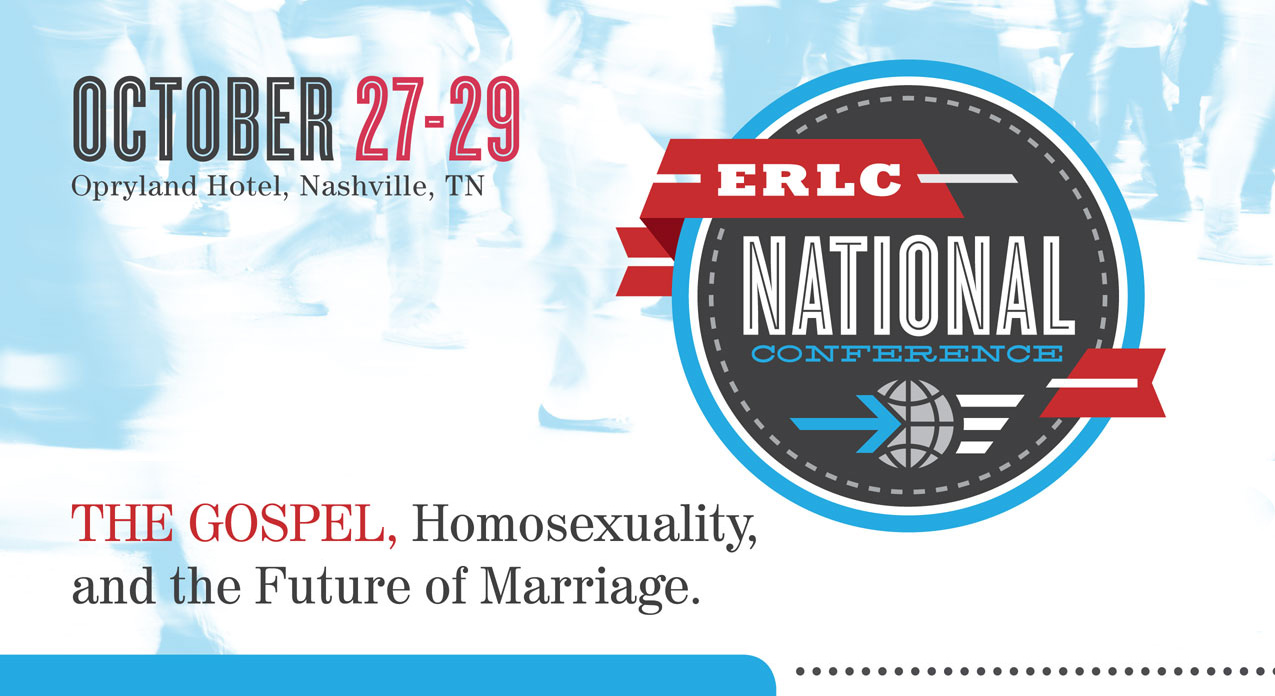
Five Basic Questions about Homosexuality and the Bible: Can we bear the burden of answering these questions?
by Steven Smith on October 31, 2014 in Christian Life, Culture, Current Events, Ethics
This week I had the privilege of attending the Ethics and Religious Liberty Commission’s National Conference and speaking on a panel discussion with Thomas White, Jason Allen and Randy Stinson. The panel was led by Phillip Bethancourt on Preparing Next Generation Leaders for a Post-Marriage Culture. You can find a link to the conference video here. This conference under the leadership of Russ Moore was profoundly encouraging.
If you’re in Christian ministry you will be tasked with asking many questions. Questions perhaps you never dreamed of asking. To hide from questions about sexual ethics, euthanasia or right to life is now impossible for anyone. The reason is simple: homosexuality is no longer an issue about “them out there” but rather “we in here.” Everyone is now touched by this reality. There is someone in your church who is dealing with same-sex attraction and there are parents and grandparents who have children and grandchildren who are homosexual. If bearing one another’s burdens means anything, it at least means we must answer five basic questions.
If you are snarky and unthoughtful, this blog is not for you. If you want to fill your arsenal with some good one-liners, this is not for you. The idea of political posturing from the pulpit is indefensible in a climate where souls are a stake. In each congregation there is someone with the burden of providing answers to the culture that wants to know about same-sex attraction and homosexual marriage. These are very short answers to some very complicated issues, but this is a start to encourage and equip you with reasonable answers to five basic questions.
- Why can’t you just accept the gay person since Jesus accepts us all as we are?
This question makes massive assumptions about the nature of Christ. A picture of Jesus as a glorified hippie whose primary function is social justice is simply a caricature that is not supported by Scripture. Jesus does not put conditions on who can come to him (Matt.11:28), but He puts tremendous demands on those who follow him (Matt. 8:18-22; Matt. 10:34-39).
- Jesus never said anything about homosexuality, right?
When Jesus was asked about marriage and divorce, he responded by deferring to the creation account of marriage (Matt. 19:3-6). We learn what we need to know about marriage from the first marriage. So did Jesus teach on homosexuality? Yes. Every question we need to know about marriage and sexuality is tied to the original marriage, which demonstrates the design of the Designer. So yes, Jesus talked about homosexuality, heterosexual sin, and every other aberration of the original design in this one sentence.
- Doesn’t the Bible need to be updated?
The Bible is clear that sexuality outside of the context of one man and one woman, in marriage, is a perversion of the original design (Romans 1:19-32; I Cor. 6:9-11).
However, our people are asking a simple question, “Doesn’t the Bible need to be updated?” We would not trust a science textbook that is even one year old, so how can we trust our lives to a book thousands of years old? Can’t I simply trust the Bible when it deals with matters of faith, but not on matters of sociology and sexuality? This seems like a fair question, but think of the implications of this.
If we pick and choose which texts to affirm and which to deny, we are standing over the Scripture as its authority. If we are its authority then it is not God’s revelation to us; rather it’s a book that becomes authoritative when we affirm what it says. However, if we can’t trust the Bible to address sexuality, how can we trust the Bible to address salvation? I certainly don’t want to be in the driver’s seat when it comes to securing my own salvation. The Scripture must be trusted completely as an expression of our complete trust in God, or not trusted at all.
- Shouldn’t the gay person have the same right to be married as a straight person?
So imagine a person comes to you and says your church must meet on Thursdays not Sundays, your clergy should wear certain vestures, and use a certain liturgy. We would consider this a violation of rights because we are free to worship any way we like. We would essentially be saying that they are re-defining what church is. This is the issue with marriage. Once it is redefined as anything but a man and a woman the fundamental structure of society is broken down. God ordained three levels of governance in our lives: the home, the church and the civil government. The society should feel the impact of the churches, and the churches are built upon the homes. A break down in the home is a fault line that runs the length of God’s plan for society.
So the question is bigger than one person’s rights. The question is, does the society have the right to define what marriage is? If we have that right, then it is not morally bigoted to define marriage in a way that is influenced by Scripture. For 2,000 years of Christian history the church has always understood the relationship between the home and the church. We should not now be demanded to think of it otherwise.
- Isn’t a gay person just born that way?
The science, and conclusions about the science, around this issue are debated. Yet even if we accept that a person has a genetic propensity to homosexual behavior, a propensity is not a destiny. To argue from the absurd, we do not tell someone with a propensity to alcoholism or obesity that they cannot help their behavior. The logic that people are born that way is saying to millions who are born with certain proclivities that there is nothing they can do about it. Do we really want to live with such fatalism? Christ gives hope to all that they will be given the grace to meet the demands of what it means to follow Him.
Conclusion
These are very short answers to some very complicated questions. However the aim here is to demonstrate that there are in fact real answers. Let me be clear: Scripture is not ambiguous, it is clear and those who speak Scripture with the same clarity are demonstrating an act of love. This is truth.
Remember, when you engage someone who is openly homosexual, they have identified themselves with a community that they believe is safe. Christ draws them to Himself as He graciously did for all of us, yet leaving that community is monumental. So let’s speak the truth with patience. This is love.
Previous Post
« Why Doesn’t God Answer Prayer? (Part 3)Next Post
Defined by Debt »





